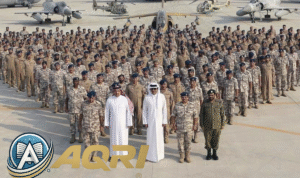In the bustling streets of Mogadishu, as the scent of incense wafts through the air and Somali tea simmering in bustling cafes, a complex geopolitical chess game unfolds in the Middle East. Israel, having long been a pivotal player in the regional landscape, is seen advancing a strategy that some analysts describe as empire-building. This comes amidst a backdrop of shifting alliances and emerging opportunities.
As the delicate peace agreements of the Abraham Accords continue to ripple across the region, Israel has leveraged its new relationships to solidify its sphere of influence. The accords, which normalized relations with several Arab nations, from the UAE to Bahrain, have opened doors that were once tightly shut. Israeli technology, especially in the fields of agriculture and cybersecurity, is finding enthusiastic markets, leading to lucrative economic partnerships.
However, what some view as economic diplomacy, others see as the nascent stages of regional dominance. Observers note Israel’s increasing involvement in the political affairs of countries like Sudan and Morocco, where the promise of investment and military cooperation is fostering stronger ties. Critics argue that behind each hand extended in friendship lies a strategic agenda aiming to reshape the power dynamics of the Middle East.
The military dimension of Israel’s influence also cannot be ignored. Its formidable defense capabilities continue to cast a long shadow over the region’s geopolitics. From strategic airstrikes that protect its borders from hostile threats to intelligence-sharing initiatives that have become cornerstones of its alliances, Israel’s security apparatus is a pivotal part of its regional strategy.
Yet, with influence comes the inherent risk of backlash. The Palestinian issue remains a thorny centerpiece of Middle Eastern politics. Despite new alliances, Israel faces persistent criticism regarding its policies in the West Bank and Gaza. The path to lasting peace remains fraught, and Israel’s maneuvering is often viewed through a skeptical lens by those who accuse it of overlooking these enduring conflicts.
In Somalia, a country with its own rich tapestry of history and conflict, the developments in the Middle East are followed closely, albeit from a distance. The impact of global geopolitics reaches its shores, influencing trade, aid, and diplomatic priorities in subtle, yet significant ways.
As Israel navigates these complex waters, the world watches to see whether its regional influence will lead to stability or further tensions. For now, the Middle East stands at a crossroads, where the echoes of empire-building meet the hopes for peace. In the heart of Mogadishu, the narrative of influence resonates, a distant yet palpable reminder of the intricate web of global relations.







Comment